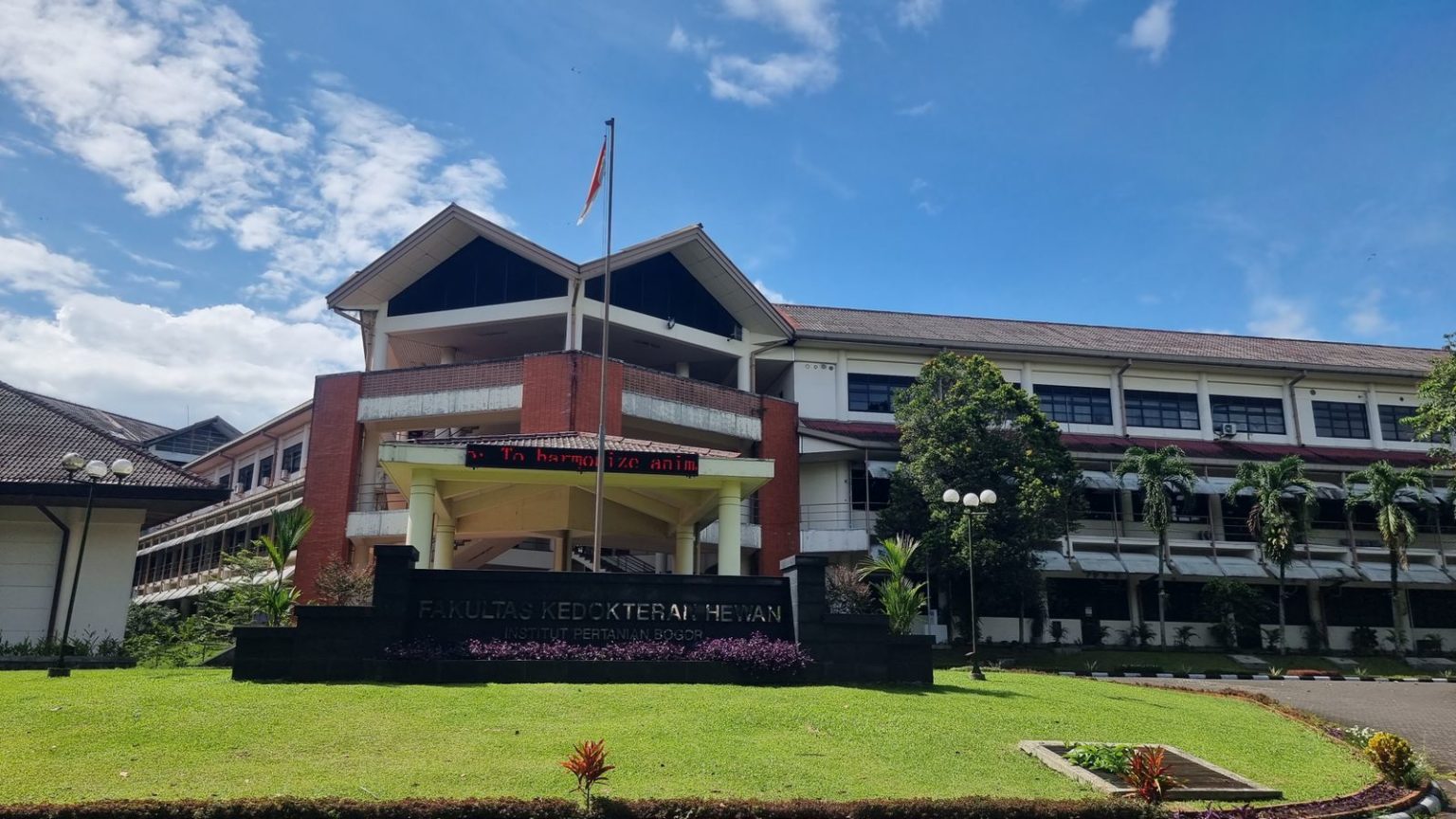About
School of Veterinary Medicine and Biomedical Sciences (SVMBS)


Overview and History
The School of Veterinary Medicine and Biomedical Sciences (SVMBS) is one of the two schools and eight faculties at IPB University. IPB University produces innovations that are recognized nationally and internationally. For ten years in a row (2010-2020), IPB University produced the most (40 %) prospective innovations among other universities in Indonesia based on the results of the Business Innovation Center-Ministry of Research, Technology and Higher Education. SVMBS IPB University is Indonesia’s first Faculty of Veterinary Medicine and a trendsetter in veterinary education.
In Indonesia, veterinary education has a long history and has played an important role in developing the SVMBS IPB University. Veterinary education in Indonesia started in 1860 in Surabaya and was closed in 1875. Because of the outbreaks of Rinderpest in Indonesia, in 1906 veterinary medical education was re-established and named Cursus tot Opleiding voor Indische Veearts in Surabaya and then moved to Bogor with the name of Animal Disease Research Institute (LPPH, now Veterinary Research Institute). In 1928 Nederlands Indische Veartsen School (NIVS, School of Veterinary Medicine Dutch East Indies) was also established in Bogor. Then in 1942, the name of NIVS was changed to Bogor Jyui Gakko, and after the independence of the Republic of Indonesia, the name was turned into Veterinary School (Sekolah Dokter Hewan, SDH). This SDH was upgraded in 1946 to the College of Veterinary Medicine (Perguruan Tinggi Kedokteran Hewan, PTKH), which was closed for a while.
In 1948 PTKH was reopened and became Faculteit voor Diergeneeskunde which was a part of Universiteit van Indonesie, and in 1950 the name was changed into the Faculty of Veterinary Medicine (FVM), University of Indonesia (Fakultas Kedokteran Hewan Universitas Indonesia, FKH UI). In 1960, FKH UI changed its name to the Faculty of Veterinary Medicine and Animal Husbandry (Fakultas Kedokteran Hewan dan Peternakan, FKHP) UI. In 1962 its name was returned to the Faculty of Veterinary Medicine University of Indonesia, while the Animal Husbandry became the Faculty of Animal Husbandry and Seawater Fisheries (Fakultas Peternakan dan Perikanan Laut, FPPL) UI.
On September 1, 1963, based on the Ministry Decree of Higher Education and Science (Menteri Pendidikan Tinggi dan Ilmu Pengetahuan, PTIP) Number 91/1963 and subsequently endorsed by the Presidential Decree Number 279/1965, IPB University was formally established with five faculties, namely: Faculty of Agriculture (derived from the Department of Agriculture Faculty of Agriculture UI), Faculty Forestry (derived from the Department of Forestry Faculty of Agriculture UI), Faculty of Veterinary Medicine (FVM) (derived from the Faculty of Veterinary UI), Faculty of Animal Husbandry (derived from the Faculty of Animal Husbandry and Seawater Fisheries UI), and the Faculty of Fisheries (a joint from the Department of Freshwater Fisheries, Faculty of Agriculture and the Department of Seawater Fisheries, Faculty of Veterinary Medicine and Animal Husbandry UI). The Faculty of Agriculture and the Faculty of Veterinary Medicine were two faculties that further developed the Faculty of Fisheries and Marine Sciences, the Faculty of Animal Science, and the Faculty of Forestry. From these five faculties at IPB University, they developed other faculties later.
Since its establishment until 2000, FVM IPB University has occupied the main campus in Taman Kencana, Bogor, as well as two other campuses in Pajajaran and Cilibende. In 2001, FVM IPB University occupied a new building in Dramaga Campus. FVM has a new animal hospital in Dramaga Campus and veterinary clinic units in Taman Kencana as a satellite of the Animal Hospital.
On December 28, 2021 FVM IPB transformed into the School of Veterinary Medicine and Biomedical Sciences (SVMBS) based on the Rector Decree of IPB Number 328 of 2021.
SVMBS is determined to produce high-quality veterinarians and professionals by implementing academic, community services, and research activities that are equivalent to international standards.
VISION
The vision of SVMBS IPB University is to establish superior veterinary and biomedical study programs based on innovative human resource development and research in science and technology in order to produce highly competitive graduates by 2035.
MISION
- Organizing innovative competency-based and student-centered veterinary and biomedical education at the undergraduate, postgraduate, professional, and veterinary levels to produce graduates that are ready to face technological developments (technology changing) and future challenges (future-ready).
- Promote lifelong learning patterns and facilitate the acquisition of new knowledge and skills through continuing professional development (CPD).
- Building a professional culture that can adapt, inspire innovation, and build an entrepreneurial mindset (techno-socio entrepreneurship) to support the implementation of sustainable national development through quality research and community service activities.
- Expanding influence as an educational institution trusted and respected by all stakeholders and plays a role in improving people’s lives through animal health, animal husbandry, and biomedicine through harmonizing animal, human, and environmental relationships (One health).
OBJECTIVE
- To produce bachelors, masters, doctors, veterinarians and specialist veterinarians, who are skilled, have integrity, competent and meet the Indonesian Veterinary Competency Standards, the Indonesian National Qualifications Framework (KKNI) in the field of Veterinary Medicine and biomedical, as well as the Day-1 Competencies of Graduating Veterinarians from Office International des Epizooties (OIE)/World Organization for Animal Health.
- To provide various structured Continuing Professional Development (CPD) activities independently or in collaboration with professional organizations and other related partners.
- To develop various innovative basic, applied and strategic research in the field of veterinary medicine and biomedical sciences with an entrepreneurial spirit to support sustainable national development.
- To implement inventions in the field of animal health, husbandry and biomedicine for human and animal welfare and environmental sustainability.
